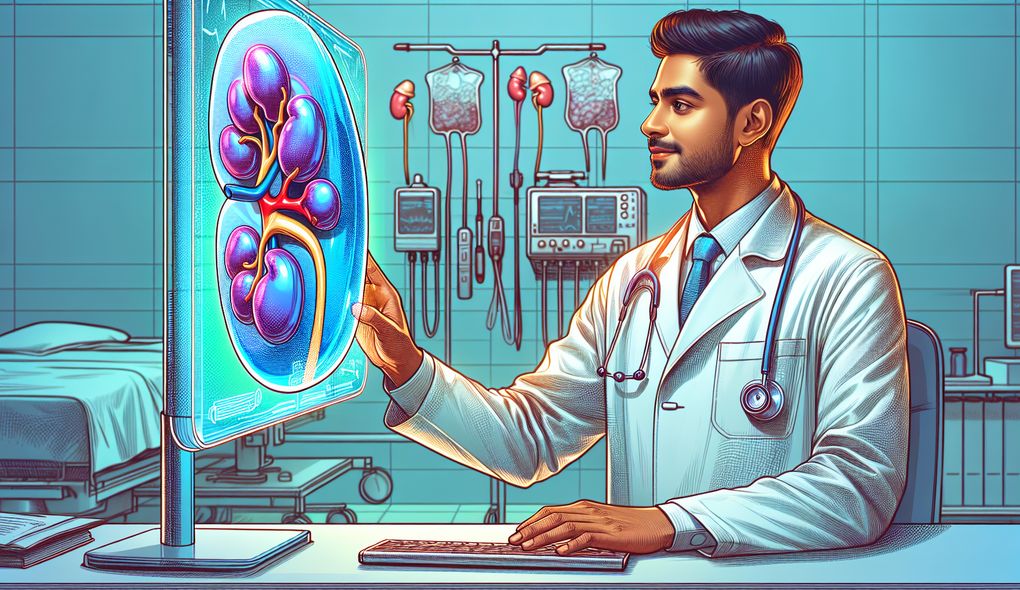Describe a time when you had to adapt your approach or treatment plan due to new research findings or changes in guidelines.
INTERMEDIATE LEVEL

Sample answer to the question:
I remember a time when I had to adapt my approach to a patient's treatment plan due to new research findings. The patient had been diagnosed with chronic kidney disease and was following a treatment plan that involved certain medications and dietary restrictions. However, a recent study suggested that a different medication and dietary approach may yield better results. After discussing the findings with the patient and explaining the potential benefits, we decided to make the necessary changes to the treatment plan. This involved discontinuing the previous medication and implementing the new medication along with a modified dietary plan. The patient responded well to the changes and showed significant improvements in their kidney function. It was a valuable lesson in the importance of staying informed and adapting our approach based on new research.
Here is a more solid answer:
I encountered a situation where I had to adapt my treatment plan for a patient with chronic kidney disease. The patient had been stable with their current treatment, but new research findings suggested a more effective medication that could potentially slow the progression of the disease. I carefully reviewed the research, analyzed the patient's current condition, and discussed the findings with them. It was important to provide clear communication about the new research and the potential benefits of switching medications. I also collaborated with a multidisciplinary team to ensure that the new treatment plan aligned with other aspects of the patient's care. Ultimately, we decided to adjust the patient's medication regimen. I closely monitored their progress and conducted regular follow-ups to assess the effectiveness of the new approach. The patient responded well to the change and experienced improvements in kidney function. This experience highlighted the significance of regular research updates and the importance of effective communication in adapting treatment plans to optimize patient outcomes.
Why is this a more solid answer?
The solid answer expands on the basic answer by providing specific details about the candidate's problem-solving skills, communication abilities, and commitment to staying informed on the latest nephrology practices. However, it could still benefit from more emphasis on the candidate's ability to work in a fast-paced and emotionally demanding environment.
An example of a exceptional answer:
I encountered a challenging situation where I had to rapidly adapt my approach and treatment plan for a patient who presented with an acute kidney injury. The initial treatment plan was based on the current guidelines, but new research findings and changes in guidelines led to a significant shift in the recommended approach. This required immediate action due to the time-sensitive nature of the patient's condition. I quickly reviewed the latest research, consulted with experts in the field, and participated in discussions with a multidisciplinary team to ensure a comprehensive understanding of the updated guidelines. Leveraging my strong analytical skills, I assessed the patient's current condition and determined the necessary adjustments to their treatment plan. I promptly communicated the changes to the entire healthcare team and provided clear explanations to the patient and their family. Additionally, I closely monitored the patient's response to the new approach, leveraging my ability to work in a fast-paced and emotionally demanding environment. The adaptation resulted in improved patient outcomes and reinforced the importance of continuous education and staying informed on the latest research to deliver the highest quality of care.
Why is this an exceptional answer?
The exceptional answer provides a detailed and comprehensive explanation of how the candidate adapted their approach and treatment plan based on new research findings or changes in guidelines. It highlights their problem-solving skills, strong communication and interpersonal abilities, ability to work in a fast-paced and emotionally demanding environment, and commitment to continuing education and staying informed on the latest nephrology practices. The answer also demonstrates the candidate's ability to effectively collaborate with a multidisciplinary team and deliver improved patient outcomes.
How to prepare for this question:
- Stay updated on the latest research and guidelines in nephrology by regularly reading medical journals and attending conferences.
- Develop strong analytical skills to critically evaluate new research findings and assess their impact on treatment plans.
- Practice clear and effective communication skills to ensure effective dissemination of updated treatment plans to healthcare teams and patients.
- Improve time management and adaptability skills to handle fast-paced and emotionally demanding situations.
What are interviewers evaluating with this question?
- Excellent diagnostic and problem-solving skills
- Strong communication and interpersonal skills
- Ability to work in a fast-paced and emotionally demanding environment
- Commitment to continuing education and staying informed on the latest nephrology practices

